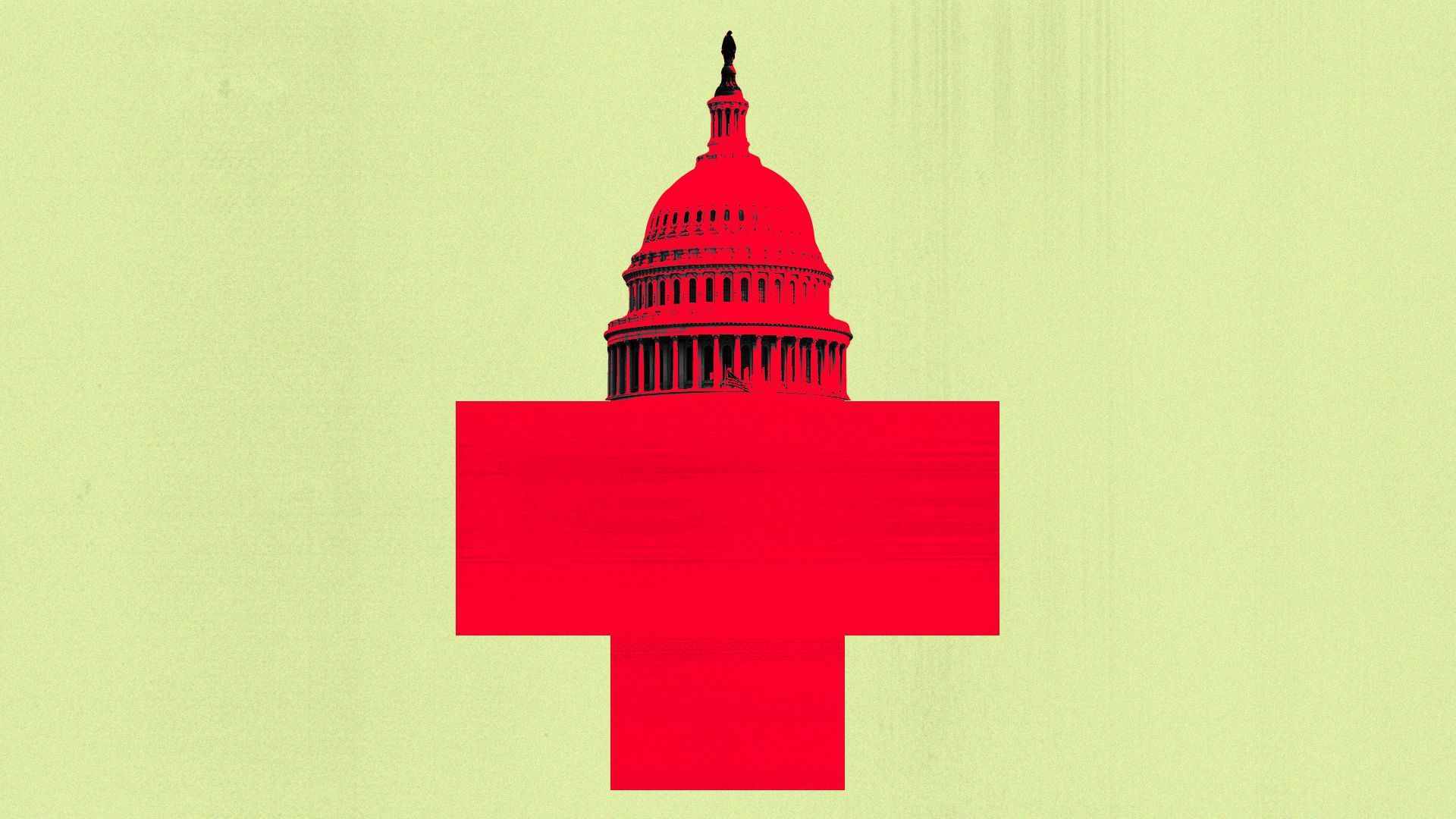| There's plenty for health care interest groups in Congress' year-end spending package, but some had to make significant concessions: There will be no pandemic commission, doctors will have to swallow some Medicare payment cuts and FDA oversight of diagnostic tests will not change, Axios' Victoria Knight, Peter Sullivan and Maya Goldman write. Why it matters: The health care riders in the year-end spending package reflect which health care interests have clout, and which issues lawmakers want to punt into next year, when Congress will be divided and deals may be more elusive. Here's where things stand: Doctors cuts: The package will stave off 2.5 percentage points of a scheduled 4.5% cut to the Medicare physician fee schedule in 2023, and 1.25 percentage points of cuts in 2024. Medicaid coverage: People could begin to be bumped from the safety net program if they don't meet eligibility requirements starting on April 1, but the process will occur over a one-year period. FDA oversight: Several FDA reforms which had bipartisan support in the House made it into the package. They include revamping a fast-track drug approval process that lets drugmakers sell their products based on preliminary evidence. Pandemic preparedness: Parts of a pandemic preparedness bill made it into the legislation, but the deal won't create a 9/11-style commission to examine the COVID response. It will, however, make the CDC director into a Senate-confirmed position. Telehealth: Medicare telehealth flexibilities will be extended for two years. The provisions have already been extended for 151 days after the end of the COVID-19 public health emergency. Opioids: The omnibus also will include a bill to remove a requirement that providers get a special waiver from the Drug Enforcement Administration before being able to prescribe buprenorphine, a treatment for opioid addiction. Read the rest. A version of this story was published first on Axios Pro. Get news like this by subscribing. Use code POLICY100 which gives you $100 off. | 





No comments:
Post a Comment